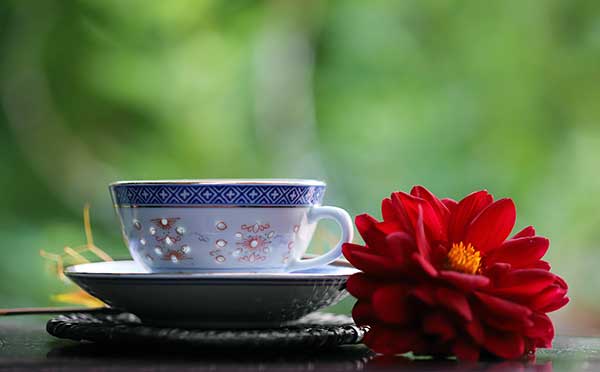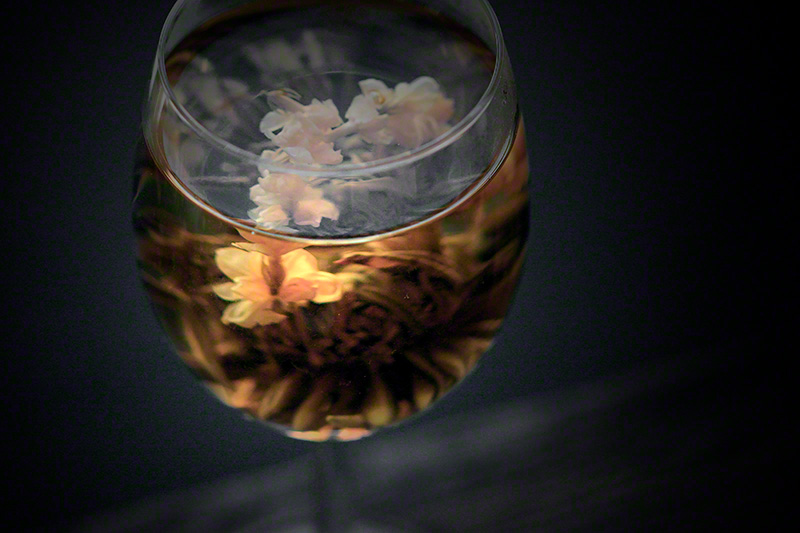Are you including spirituality into your tea drinking rituals? Or do you drink tea purely for its health benefits? Whatever your reasons might be, tea is much more than an ordinary hot drink. No mud, no lotus – and no tea.
No mud, no lotus, is a beautiful metaphor created by the Buddhist monk Thich Nhat Hanh, meaning there is something beautiful coming after enduring pain and difficulties. In fact, those difficulties should give us a strength and belief that there will be a lotus growing from our own mud. If we decide not to drown in darkness.
How is that related to tea?
The world is changing. Technology and consumerism caused not only detachment from nature, but detachment from people as well. We are constantly being pushed into stressful situations, difficult decisions, fear and negativity. And more than often, there will be no lotus growing from that mud. We cut the roots too soon and stay below the surface.
Tea and spirituality
Tea has been an important part of Buddhism. It has been used in meditations for centuries. Tea has energy or qi. Although rarely mentioned in the West, qi is a very important characteristic (and benefit) of tea in China. The energy of tea can help you feel calm, more conscious, alive, or awaken. Including tea into meditation is a good way to practice mindfulness, become peaceful, loose judgements and connect to nature. To truly enjoy tea, you must include all your senses.

(Photo: Tea Chronicles ©)
Overcoming darkness
Does tea really have that power? We can think of tea as a stress-reliever. It may help maintain focus during difficult times. Tea is the only drink in the world that millions of people are drinking because they feel an honest joy and peacefulness.
Next, the more we learn about tea, the more conscious we are becoming of both nature and people. Many tea drinkers follow the same path from trying their first loose leaf tea to becoming true tea lovers. Turning to nature, beauty, caring about producers and pluckers, and finding peacefulness is the last stop of that journey. It is also the one no tea drinker wants to leave.
The best teas to practice mindfulness
One of the most commonly used teas for spiritual purposes is matcha. It has been used for over a thousand years. Tea ceremony teaches humbleness, patience and simplicity, and offers spiritual transformations.
Blooming tea is another great choice for practicing mindfulness and relaxation. The beauty of slowly opening leaves and flowers emerging from the inside can be closely related to “no mud, no lotus” metaphor. It requires brewing in hot water and patience to see all its beauty.
Next, the production of those two teas requires much more effort, knowledge and time than for other tea types, especially regular tea bags. Is this a coincidence? The more patient, nurturing and hardworking tea workers are, the more value and beauty they will create.

(Photo: Tea Chronicles ©)
Even learning how to brew a perfect cup of tea requires sitting in the mud for a few years. But, not giving up will ultimately result in a skill that will bring you happiness and calmness for many years to come.
No mud, no lotus
Tea can teach us great lessons in life. It can help us endure difficulties, show us beauty, keep us calm and peaceful, teach us how to respect people and bring us closer to others. Next time you find yourself in a difficult situation, instead of turning to negativity, over-consumption of unhealthy food and other unhealthy practices, try turning to tea. It might be exactly what you need to bloom from the mud.



Can I purchase lotus flower blooming teas at your site also can you do a mix and match flowering teas in the 10 pack